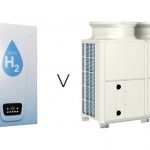Why Do Commercial Gas Boiler Heat Exchangers Break and How to Prevent It
Commercial gas boilers play a pivotal role in heating systems for businesses, providing essential warmth during colder months. However, even the most robust systems are susceptible to heat exchanger failures, which can disrupt operations and lead to costly repairs. Understanding the root causes of these failures and implementing preventive measures is crucial for maintaining optimal boiler performance. In this article, we delve into why commercial gas boiler heat exchangers fail and outline the best strategies to prevent such occurrences.
1. Corrosion: The Silent Culprit
One of the primary reasons for heat exchanger failure in commercial gas boilers is corrosion. Over time, exposure to moisture, oxygen, and certain chemicals can lead to rust and deterioration of the heat exchanger’s metal components. Corrosion weakens the structure, causing leaks and reducing heat transfer efficiency.
Prevention Strategy: Regular inspection and maintenance are paramount to combat corrosion. Implementing corrosion-resistant materials, installing water treatment systems, and controlling pH levels can significantly extend the lifespan of the heat exchanger.
2. Scaling and Deposits
Mineral deposits, commonly referred to as scaling, accumulate on the surfaces of heat exchangers due to the presence of hard water. These deposits insulate the metal, impeding heat transfer and causing the boiler to work harder to maintain desired temperatures.
Prevention Strategy: Employ water softening systems to mitigate the effects of hard water and reduce scaling. Regular descaling procedures should also be incorporated into maintenance schedules to remove existing deposits and prevent future buildup.
3. Thermal Stress
Commercial gas boilers experience frequent temperature fluctuations during operation, subjecting the heat exchanger to thermal stress. Over time, this continuous expansion and contraction can lead to cracks, fractures, and ultimately, heat exchanger failure.
Prevention Strategy: Implement measures to minimize thermal stress, such as gradual heating and cooling cycles and ensuring proper ventilation to maintain consistent operating temperatures. Additionally, selecting heat exchangers constructed from durable materials capable of withstanding thermal fluctuations is essential.
4. Poor Installation and Maintenance
Inadequate installation practices and lack of routine maintenance can exacerbate the likelihood of heat exchanger failure in commercial gas boilers. Improper sizing, incorrect assembly, and neglecting essential upkeep tasks can compromise the integrity and efficiency of the entire heating system.
Prevention Strategy: Entrust installation and maintenance tasks to qualified professionals with expertise in commercial boiler systems. Establish a comprehensive maintenance schedule encompassing regular inspections, cleaning, and component replacements to identify and address potential issues before they escalate.
Conclusion
Commercial gas boiler heat exchanger failures can disrupt business operations and incur substantial repair costs if left unchecked. By understanding the underlying causes of these failures and implementing proactive prevention strategies, businesses can ensure the longevity, efficiency, and reliability of their heating systems. Prioritizing regular maintenance, employing corrosion-resistant materials, managing water quality, and mitigating thermal stress are integral steps in safeguarding commercial gas boilers against heat exchanger failures, ultimately optimizing performance and minimizing downtime.
Incorporate these preventive measures into your boiler maintenance regimen to safeguard your business’s heating infrastructure and uphold uninterrupted operations throughout the year.






